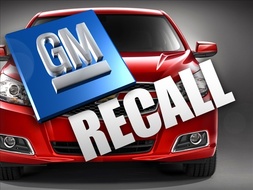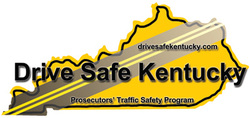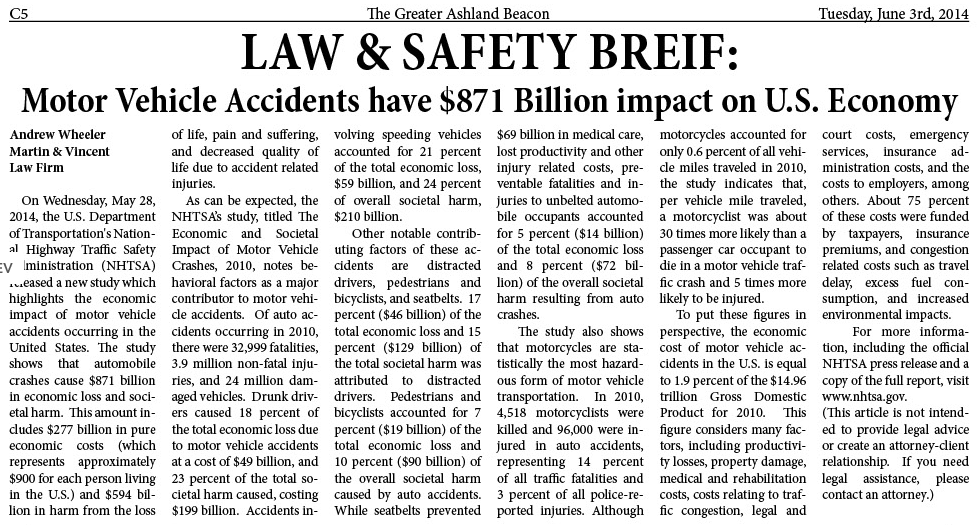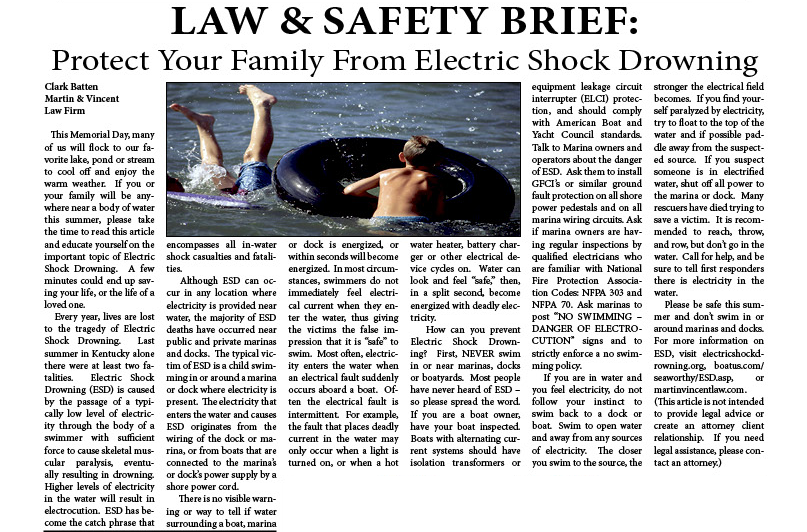|
In our most recent Law & Safety Brief, published monthly in the Greater Ashland Beacon, we are highlighting a recent study released by the U.S. Department of Transportation's National Highway Traffic Safety Administration (NHTSA). This report shows the massive impact automotive accidents have on the U.S. economy - totaling $871 Billion. The report indicates that economic costs - which includes factors such as congestion costs, medical costs, property damage, legal and court costs - totaled $277 billion, or $897 for each of the 308.7 million people living in the U.S., and 1.9% of the $14.96 trillion Gross Domestic Product (GDP) for our nation in 2010.
As a result of all auto accidents in 2010, 32,999 people killed, 3.9 million were injured, and 24 million vehicles were damaged. Intersection crashes represented 26% of all fatalities and approximately 55% of all nonfatal crashes, while interstate highway crashes represented 13% of all fatalities and about 8% of all nonfatal crashes. Single-vehicle accidents resulted in 58% of all fatalities and about 20% of all nonfatal crashes. Although motorcycles accounted for only 0.6% of all vehicle miles traveled in 2010, motor cycle accidents accounted for 14% of all traffic fatalities and 3% of all police-reported injuries. The study also shows the positive impact of passenger car occupants wearing safety restraints. Seatbelts prevented $69 billion in medical care, lost productivity and other injury related costs. However, preventable fatalities and injuries to non-restrained automobile occupants accounted for 5% ($14 billion) of the total economic loss and 8% ($72 billion) of the overall societal harm resulting from auto crashes. For the full Law & Safety Brief article published in the Greater Ashland Beacon, visit www.ashlandbeacon.com. If you would like more information regarding the NHTSA's recent study, or to view the full report, go to www.nhtsa.gov. Posted by Andrew Wheeler
0 Comments
 Martin & Vincent, PSC will be authoring monthly articles which will be published in the Greater Ashland Beacon. The monthly column is titled the “Law & Safety Brief,” and will feature numerous topics relating to public safety and current legal issues. The first edition of the “Law & Safety Brief” can be found below and in the most recent issue of the Beacon, published on Tuesday, May 6, 2014, and discusses the dangers of Electric Shock Drowning. The Greater Ashland Beacon, a weekly newspaper, is dispersed throughout Ashland, Kentucky and its surrounding areas, and can be viewed online as well. For more information, or to view a free copy of the Beacon online, please visit www.ashlandbeacon.com. We welcome your feedback and, if there are any topics relating to public safety or legal issues you would like to see covered in the article, please let us know. However, like our blog, the “Law & Safety Brief” is not intended to provide legal advice or create an attorney-client relationship. If you or someone you know needs legal assistance, they should contact an attorney.  General Motors has issued another vehicle recall for an ignition switch defect that can cause the car to stall and deactivate the air bags. On Monday, March 31st, GM recalled an additional 1.5 million vehicles, which includes the 2010 Cobalt and the 2004-2007 Saturn Ion, because the electronic power-steering assist can suddenly fail. To date, GM has recalled approximately 2.6 million small cars for the ignition switch defect. GM has linked 13 deaths and more than two dozen motor vehicle accidents to problems with the ignition switch. In 2014 , GM has recalled nearly 7 million vehicles for multiple issues, including the ignition switch defect, steering problems, flaws in side airbag wiring, and malfunctioning instrument panels. According to CNN Money, GM estimates it will take a $750 million charge against earnings in the first quarter of 2014 to cover the cost of all repairs. GM’s new CEO, Mary Barra, is expected testify before Congressional committees regarding the major recall this week.  A new safe driving program has been introduced in Carroll County, Kentucky, which is designed to reduce the number of repeat traffic offenders. According to a recent article in the Madison Courier, Carroll County Attorney Nicholas Marsh has introduced Drive Safe Kentucky, a program which will allow participants to have a traffic violation dismissed after completing certain requirements. "When a traffic citation is written, we have an opportunity to increase awareness of traffic laws and safe driving practices," Marsh said in a press release. "Drive Safe Kentucky offers a convenient alternative to traffic court while reducing the chances of reoffending." The program will allow participants to maintain a good driving record by preventing points being assessed against their license, all while avoiding additional costs, fines and court appearances. It is also may have a positive effect on insurance premiums, as the program could keep a violation from appearing on a participant's driving record. As of now, it appears that the Drive Safe Kentucky program is only offered to Carroll County residents, but it has the potential to expand across the Commonwealth. Currently, the Carroll County Attorney's office determines eligibility to enter the program. Violators with DUI offenses or those who maintain commercial driver's licenses (CDLs) will not be eligible for the program. There is a $149 fee for the course. The Carroll County Attorney's office is working with the Public Safety Institute of Kentucky regarding the educational component of the program, which consists of a traffic quiz (96 questions). It may be completed online and takes approximately two hours. A DVD version is also available. The Madison Courier article may be found at: http://madisoncourier.com/main.asp?SectionID=4&SubSectionID=286&ArticleID=82323 For more information about Drive Safe Kentucky, please visit their website or Facebook page: https://www.drivesafeky.com/ https://www.facebook.com/DriveSafeKentucky Posted by Andrew Wheeler |
AuthorAttorneys at Martin & Vincent Archives
June 2014
Categories
All
DISCLAIMER: This blog does not offer legal advice. If you need legal advice, consult with a lawyer.
|



 RSS Feed
RSS Feed